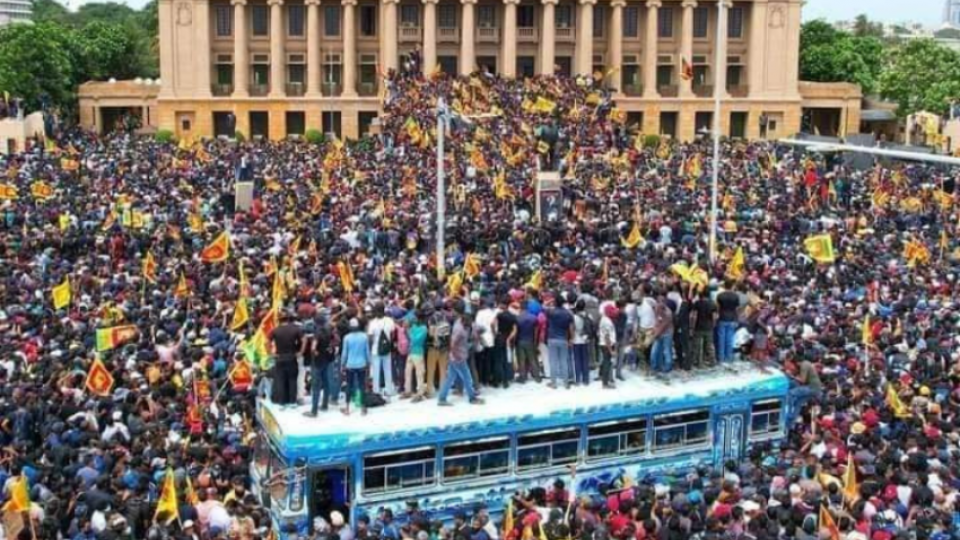Solidarity with the mass protest movement in Sri Lanka

Socialist Alliance welcomes the success of Sri Lanka’s mass protest movement in forcing the removal of President Gotabaya Rajapaksa.
Thousands of people overcame a heavily-armed military and police on July 9, to occupy the presidential offices and residence.
This incredible demonstration of people power is an inspiration for all those struggling for a better world.
Rajapaksa fled the country before resigning on July 15. The protesters are demanding that Acting President Rani Wickramasinghe also keep his promise to resign.
Wickramasinghe declared a state of emergency on July 13, sparking fears of repression. This reinforces the importance of building international solidarity with the protests.
The people’s movement was triggered by an economic crisis that caused many to go without food, medicine, petrol and other necessities.
Protesters correctly blame the Rajapaksa regime for corruption and incompetence. They also denounced it for promoting Sinhala-Buddhist chauvinism.
Successive governments contributed to exacerbating the country’s long-standing economic problems and ethnic divisions.
British colonialism left Sri Lanka with an economy dependent on a few crops, notably tea. Successive governments failed to significantly diversify the economy and promote real economic development.
Moreover, market measures since 1977 deepened exploitation, including of migrant workers.
Sri Lanka’s elite enjoyed imported consumer goods and embezzled money through poorly-planned public investments, which led to balance of payment deficits and the immiseration of many. International Monetary Fund bailouts and neoliberal economic policies made the problems worse.
Successive Sri Lankan governments used racism to divide the people and distract attention from their failure to meet people's needs.
Discrimination and violence against Tamils culminated in a pogrom in 1983. After this, many Tamils took up arms to fight for an independent Tamil homeland.
The civil war ended in 2009, with the massacre of 40,000–70,000 Tamil civilians.
The military occupation of Tamil areas continues. Despite the repression, Tamils continue to protest against the confiscation of their land, for freedom of political prisoners and for information about disappeared relatives.
The cost of Sri Lanka’s military occupation in the north and the eastern provinces has diverted resources away from spending on people's welfare and exacerbated the economic crisis.
Moreover, the government implemented repressive laws to cover up crimes of the state, allow for arbitrary arrests, detention and torture. All these were used to repress the mass movement.
The current upsurge offers a way of overcoming these problems.
The mass movement’s Action Plan for the Future of Struggle, published on July 5 set out a series of demands, including:
- The resignation of the president, prime minister and other government ministers;
- Replacing the current government with an interim government that subscribes to the economic, social and political aims of the mass movement;
- A program for the provision of essentials such as food, fuel, gas and provision of education, public transport and energy; and
- The formation of a new constitution that endorses people’s sovereignty.
Australian governments’ anti-refugee policies and support for the Sri Lankan regime, including military support, has bolstered the latter’s authoritarian policies.
Therefore, Socialist Alliance demands that the Australian government:
- Refuse to provide safe refuge for Gotobaya Rajapakse and other government criminals;
- Welcome refugees fleeing the suffering caused by the crisis, and end its practice of boat turnbacks; and
- Provide humanitarian aid to Sri Lanka and end military aid, which is being used to stop refugee boats leaving the country.
Socialist Alliance will continue to support the solidarity protests called by the Sri Lankan community in Australia and build solidarity with the mass movement in Sri Lanka.